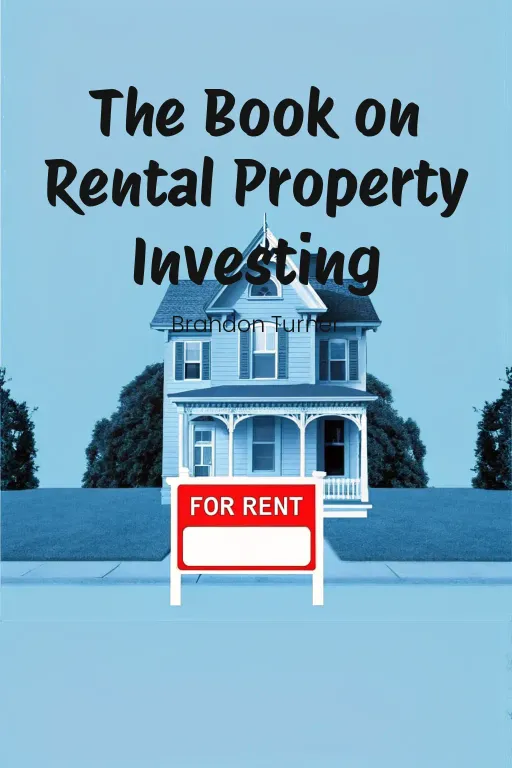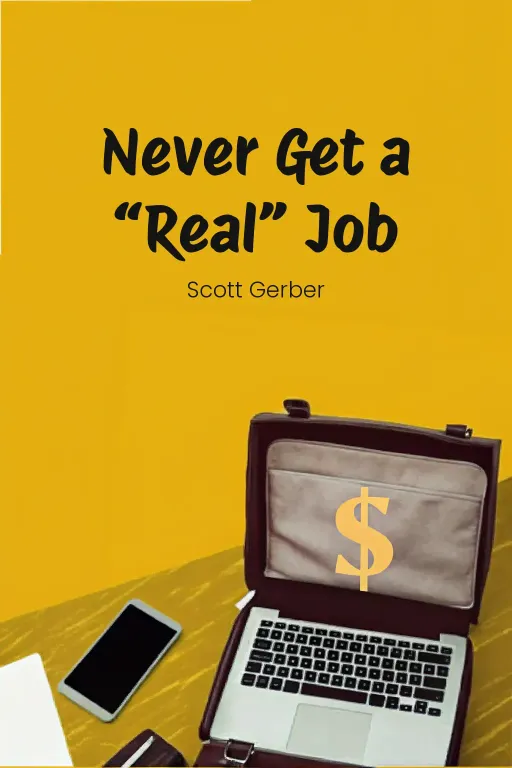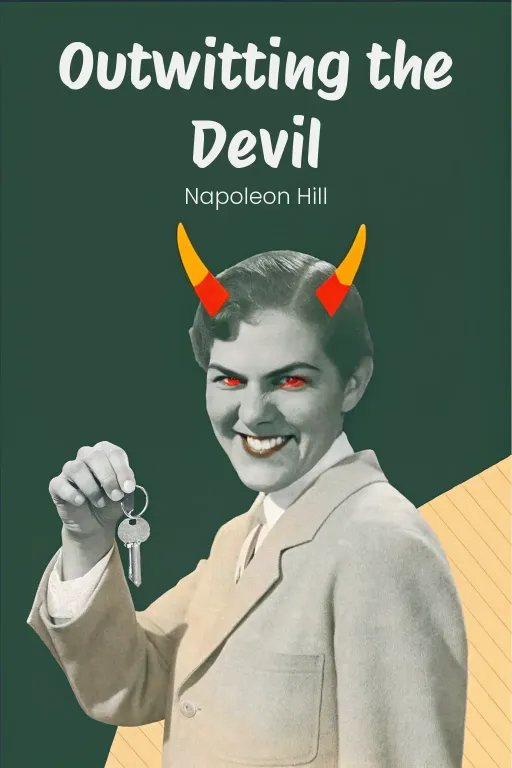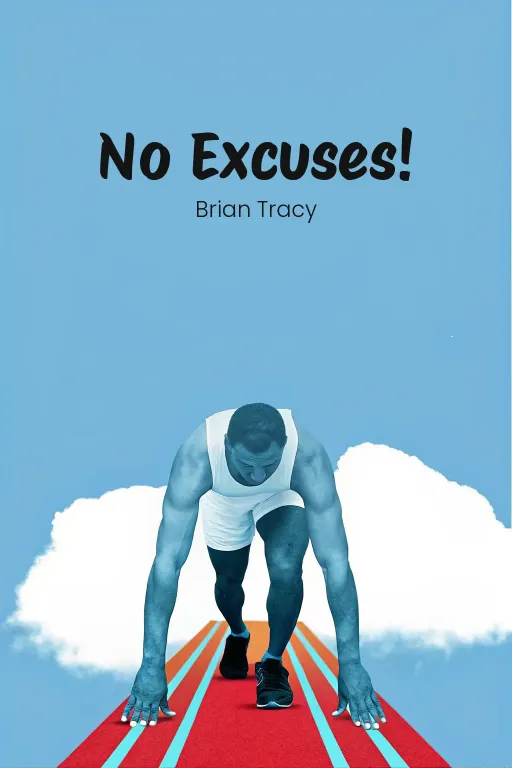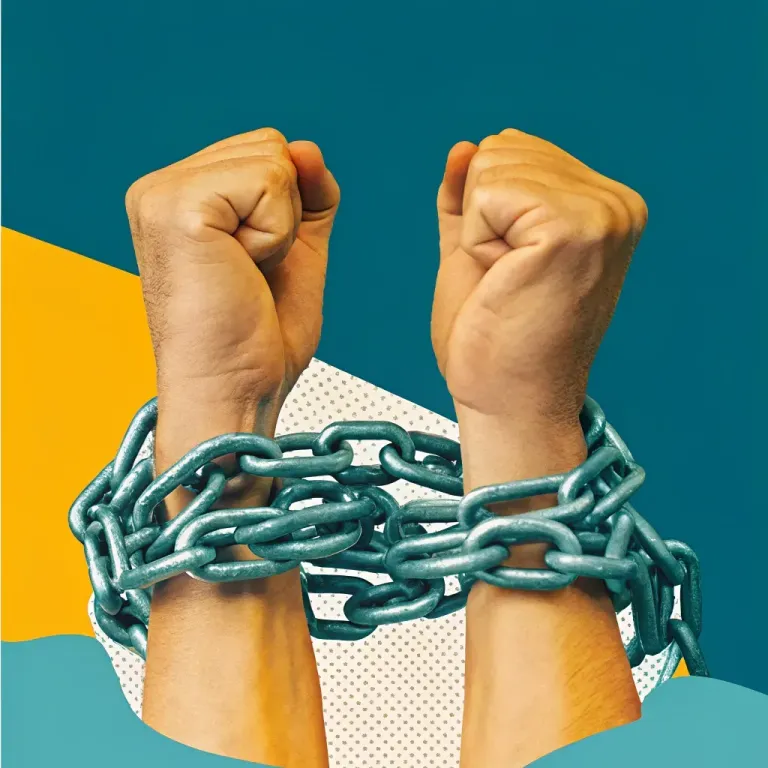
Master Your Life: Build True Self-Discipline
Podcast by Let's Talk Money with Sophia and Daniel
The Power of Self-Discipline
Introduction
Part 1
Daniel: Hey everyone, welcome back! Today we're tackling something that can seriously level up your life: self-discipline. You know, it’s often just brushed off as willpower, but what if it's actually the key to unlocking happiness, success, and feeling truly fulfilled? Sophia: Okay, that's a pretty big claim right off the bat. But, honestly, how many times have we all jumped on the goal-setting bandwagon, made grand New Year’s resolutions, only to see them fizzle out like a dying sparkler? Is self-discipline really the magic bullet, or just another one of those overhyped terms? Daniel: That's a totally valid question, Sophia, and it's exactly what we're diving into with this book. It breaks down self-discipline and shows you how to apply it in pretty much every area of your life – from personal growth to relationships, career, even your health and finances. Think of it as building a solid base for a life with real meaning and impact. Sophia: So, we're not just talking about gritting your teeth and resisting that donut, right? It's more than just white-knuckle willpower? Daniel: Definitely! It’s about owning how you show up in your life and making conscious choices that move you closer to where you want to be. And the beauty of this book is, it's not just theoretical. It gives you concrete, doable steps to build self-discipline as a skill you can learn and improve. Sophia: Alright, you've got my attention. So, what are we actually going to unpack today? Daniel: We're going to explore three main areas where self-discipline makes a huge difference. First, personal growth—we’ll look at how discipline sets you up to achieve your goals and handle setbacks. Then, we'll jump into your professional life—how it can boost your productivity, finances, and decision-making skills. And finally, our daily lives—where health, relationships, and finding peace all come together thanks to disciplined habits. Sophia: So, if I'm hearing you right, self-discipline is kind of the bridge between just dreaming about things and actually making them happen? Daniel: Exactly! And each step on that bridge is built with the choices we make and the habits we develop. So hey, let's jump in!
Self-Discipline and Personal Success
Part 2
Daniel: So, Sophia, picking up where we left off, let’s dive into this link between self-discipline and success. The book really breaks it down, starting with responsibility. Now, that's a loaded word, isn't it? So, what makes responsibility such a key foundation for self-discipline? Sophia: Exactly. Responsibility. It sounds…heavy. So Daniel, unpack that for us. Why is that such the cornerstone of self-discipline? Daniel: Well, put simply, responsibility is about owning your life, Sophia. It's recognizing that, yeah, external things might influence you, but your choices? They're what really drive your outcomes. It’s so easy, and frankly, tempting, to blame circumstances, luck, whatever, for failures. But, the second you realize that your decisions, even the small ones, are steering your future, that's when you reclaim control. Sophia: I see. Makes sense. But being real here, taking ownership isn’t always easy. It's way easier to say, "I missed my targets because my boss gave me impossible deadlines," versus, "Maybe I didn’t manage my time well." So, how do you even train yourself to embrace this responsibility? Daniel: It really starts with being aware and building new habits. Something like reflecting on your actions, you know? And the example of J. Paul Getty in the book really drives this home. He didn’t just become wealthy by accident. He actively got rid of habits that could throw him off course. Self-discipline really does require this constant, almost brutal honesty with yourself about what’s working and what isn’t. He called for breaking habits that hold you back – procrastination or complacency, for example – because those things can totally unravel your success. Sophia: Wow, Getty’s view sounds almost…militant. "Break the bad habits before they break you." But there’s something to that. Because you can’t build a great strategy on a shaky base, right? Speaking of building, let’s move on to goal-setting. Something everyone “loves” to romanticize. What does this book suggest that goes beyond the usual "write your goals down" advice? Daniel: Oh, I love this part. The seven-step method actually elevates goal-setting into a science. We've all heard about writing down goals, sure. But the twist here is writing specific goals, then linking them to actionable steps. Let's say someone wants financial freedom. Vague, right? The book says to break that into something actionable, like "save $10,000 in 12 months by putting 20% of every paycheck into a high-yield savings account." Sophia: Okay, being specific… that makes it sound real, not just some dream. And I assume deadlines are the next piece of this? Daniel: Exactly! Without deadlines, goals just drag on. Think of a marathon with no race day. You'd never train for it, right? A clear timeline pushes you to act, to keep the momentum going. The book also stresses breaking big goals into smaller, manageable tasks. Think about someone wanting to write a novel. It feels huge, right? But focusing on a daily word count…that makes it doable. You’re not writing a whole book in a day, you’re writing it in small, disciplined bursts. Sophia: I see how this works. I’ve written down goals, set deadlines, maybe even broken them into steps. But how do you decide where to even begin? The volume of trying to achieve something can be a bit overwhelming. Daniel: That's where prioritizing comes in. And the book brings in the Pareto Principle – you know, that 80% of the results come from 20% of the efforts. Basically, figure out the tasks with the most impact and focus on those. It’s like tackling the strongest domino in a line. When it falls, everything else gets easier. Sophia: So, you’re saying I should swap the low-priority 'scroll for an hour through emails" to "pitch my big idea to the boss"? Daniel: Exactly. The high-priority task probably feels harder, maybe riskier, but it’s the one that drives the most progress. The book even encourages taking one immediate action to boost momentum. Waiting for the "perfect moment" is just about the biggest goal-killer there is. Sophia: Alright, I get it. Action beats perfection. Even with the momentum though, let's admit, the real killer is when setbacks hit. Then persistence either makes you or breaks you. Daniel: Absolutely, Sophia. The book has a whole section on persistence, because success just isn’t a straight line. Think about Edison and his 10,000 failed lightbulb experiments. That’s not just persistence, that’s relentless optimism combined with adaptability. He saw those failures as stepping stones, and each one taught him something critical for his breakthrough. Sophia: Inspiring… sure, but not everyone is building a lightbulb. How does the average person build this resilience? Daniel: Great question. It starts with mindset. Positive self-talk. Saying, "I can figure this out," instead of, "I can't do this," really builds a foundation. Then it’s about seeing setbacks as temporary, not dead ends, right? The book even suggests finding mentors or role models for guidance. These people have faced their own hurdles and can help reframe your experiences or show you solutions you didn’t even think of. Sophia: And throw in some sarcasm and letting off some steam to release a little pressure? Because honestly, as noble as persistence sounds, the daily grind can feel overwhelming. Daniel: Totally – there's room for balance. Persistence doesn’t mean just pushing blindly, no matter what. It’s knowing when to change strategies while still having your eye on the goal. Adaptability is so crucial for resilience. Sophia: So, to recap, success is not just about wanting it. It’s about taking responsibility, setting smart goals, prioritizing the right steps, and having persistence in your back pocket for when the plans hit the fan. That makes sense. Daniel: Exactly! And when you bring all those elements together – responsibility, goal-setting, and persistence – self-discipline changes. It goes from being something you dread to a natural way to approach success. It changes how you approach not just your work, but your whole life.
Self-Discipline in Business and Finances
Part 3
Daniel: So, from understanding the role of self-discipline in success, we're moving into how it shapes your character, especially in business and finances. It's really fascinating because it shows how things build on each other –individual habits at work, and later to leadership skills, and finally, financial strategies that give you long-term freedom. Sophia, doesn’t that sound like a step-by-step formula for success? Sophia: Structured, for sure. But let’s dig into workplace productivity first. It’s easy to say “prioritize tasks,” but when your inbox is overflowing and deadlines are piling up, where do you even begin to decide what’s really important? Daniel: That's where the Pareto Principle comes in – you know, the 80/20 rule. The idea is that 80% of your results come from 20% of your efforts. If you pinpoint those high-value tasks that make the real difference, you cut down on the busywork, like obsessively checking emails. Sophia: So, instead of treating every email or meeting like it’s a crisis, it’s about figuring out that 20% – the stuff that actually moves the needle. Okay. But any tips on how to actually do this? We're all creatures of habit. Just deciding to "stop wasting time" isn't enough. Daniel: Totally, and the book actually gives you some tools! The ABCDE method is a good one. You sort tasks into five groups – A for urgent and important, B for important but not urgent, all the way to E for stuff you can just ditch. Combine that with time blocking, where you set aside specific times for high-priority work without interruptions, and suddenly, you’re running your day instead of the other way around. Sophia: Very practical. Let me push back a bit, though. Isn't this easier said than done? Take that executive in the book, the one swamped with emails and projects. Even if they delegate or block time, isn't there still a temptation to micromanage or jump back into the easier, less stressful tasks? Daniel: That temptation's definitely there, but the book emphasizes a key mindset shift: think of this as a long-term game. For that executive to nail a deal or create powerful strategies, those bigger tasks have to come first. Delegation and discipline go hand in hand. You let go of the small stuff to free up your time for what really matters. And don’t forget, hiring and trusting the right team lets leaders delegate those details. Sophia: Okay, fair enough – teamwork makes the dream work. I’m convinced that workplace discipline gets results. But then we get to leadership development, which – correct me if I’m wrong – seems less about “doing” and more about “being.” Daniel: Exactly. Discipline in leadership isn’t just about checking off items on a list. It’s showing qualities like vision, accountability, and staying calm under pressure. The book explains this in terms of how you grow, starting by mastering your own tasks as an employee, all the way to inspiring and leading others with vision and ethical consistency. Sophia: Let’s look at the big picture. It’s one thing to lead when things are going smoothly. But does the book have an example of disciplined leadership when things were going wrong, like in a real crisis? Daniel: Definitely. There’s this story about a retail CEO who had to make massive layoffs during a financial crisis. Instead of acting impulsively, this person took a systematic approach. They stayed calm, gathered information, and communicated honestly with employees. Instead of immediate layoffs, they invested in employee skills and created a collaborative recovery strategy. That approach saved the company and also built trust with everyone. Sophia: That’s next-level leadership – turning a crisis into a chance for growth and loyalty. What really struck me was that mix of calm and taking responsibility. When things are tough, panic can spread, but a disciplined leader responds with strategy rather than emotion. Daniel: Precisely. The book points out three key traits for these situations: vision, which gives the team a sense of direction; composure, which keeps things steady during a storm; and accountability, which earns respect because you take ownership of your decisions and their results. And here's the thing – these traits aren’t something you’re born with. You develop them over time through consistent effort. Sophia: So, leadership discipline isn’t about having some kind of magical charisma. It’s about managing yourself methodically. Alright, let’s change gears and talk finances. I know this is where people often lose interest. Financial independence sounds nice, but for the average person just trying to pay bills, it seems impossible. How do you make it seem more realistic? Daniel: A basic strategy is the "pay yourself first" idea. Before you spend money on anything else, set aside a percentage of your income for savings or investments. It’s a simple but powerful way to train yourself to prioritize future security over instant satisfaction. Sophia: Practical, but let’s make it more complex. What if someone’s living paycheck to paycheck? Savings aren’t even an option. How can they start doing this without making their financial situation even worse? Daniel: Good question! The solution is to start small. Set aside even 1% of your income, automate it, and gradually increase the amount as you can afford to. The book talks about the psychological effect of this. It's less about the amount and more about creating the habit of saving consistently. This builds not just financial reserves, but also confidence and control over your money. Sophia: Alright, I understand that change in mindset. But should we get into the technical details, like how compound interest plays a role in all of this? Daniel: Absolutely! Compound interest is the unsung hero of disciplined saving. If you invest consistently, your returns start earning returns, and over the years, your wealth grows significantly. For example, someone saving just $100 a month with a 7% return from age 25 to 65 could end up with over $250,000. Sophia: That kind of math makes me wish I’d started saving earlier. And this method isn’t just for retirement accounts, right? It applies to different kinds of investments? Daniel: Correct. Diversification, from mutual funds to stocks and retirement plans, spreads the risk and maximizes returns. The goal is to create a well-rounded portfolio that works for you over time, which leads to financial freedom. And, of course, budgeting with purpose also ties everything together. Knowing where your money is going makes sure that every dollar is working for your benefit. Sophia: So, financial discipline comes down to intention: spend wisely, save early, and let the magic of compounding do the hard work. Daniel, summing it up, it feels like this section is full of important insights. We’re not just talking about habits; we’re building complete frameworks to not only survive but thrive. Daniel: Exactly, Sophia. By focusing on productivity, leadership, and finances, self-discipline becomes more than just a personal tool. It gives you more influence and empowerment. It’s holistic – it elevates you while also positively impacting others and the future.
Self-Discipline and the Good Life
Part 4
Daniel: Okay, Sophia, so now that we've looked at how self-discipline impacts our external achievements, let's dive into how it affects our personal well-being. This section, "Self-Discipline and the Good Life," it's really about how discipline shapes our health, relationships, and overall emotional peace. Sophia: Exactly! It's about stepping away from all the "hustle" and asking how we can build a truly fulfilling life. So, where does this "good life" begin, Daniel? Daniel: Well, the book starts with physical and mental health as the foundation. From there, it moves into building strong relationships, and finally, delves into emotional well-being. The goal is adding life to your years, not just years to your life, you know? Sophia: Right, right, got it. Okay, let’s start with health. Everyone knows they should exercise, eat better, sleep more - the usual suspects. But let's be real, most New Year's resolutions bite the dust by February. What does the book suggest to make those healthy habits actually stick? Daniel: The key is to ditch the vague "get healthy" goal. Instead, the book breaks it down into the "Five Ps of Excellent Health." Each "P" is a pillar: Proper Weight, Proper Diet, Proper Exercise, Proper Rest, and Proper Attitude. Think of it as a structured roadmap for feeling your best. Sophia: Okay, I like that! Let’s unpack these "Ps." Starting with Proper Weight, is this just about fitting into your jeans, or is there a bigger picture here? Daniel: Definitely bigger picture. Excess weight drains your energy and puts a strain on your body, increasing long-term health risks. But it's about changing your set point with consistent habits, little by little. Things like portion control or swapping soda for water can lead to big changes over time. Sophia: Okay, so slow and steady wins the health race. What about diet? Spinach over drive-through, I assume? Daniel: Exactly. The idea is to fuel your body for performance with whole foods—vegetables, lean proteins, complex carbs. Minimizing processed foods. It's about approaching meals with intention, fueling rather than indulging. Sophia: Right, that makes sense. Exercise, probably next. I can hear people already saying, "I don't have time for three-hour gym sessions!" Daniel: And they don't need to! It's about consistency, not intensity. Start with, say, a 10-minute walk each day. Remember that story of the woman who went from being sedentary to running marathons by age 75? She didn’t do that overnight. Small, disciplined steps add up. Sophia: Definitely! But I think there is a harder "P" right here: Proper Rest. Sleep is both underrated and overcomplicated. What's the core message here? Daniel: Your brain and body need it. Over 60% of adults don’t get enough sleep. Without it, cognitive function, emotional stability, even your immune system suffer. So prioritizing rest means sticking to a sleep schedule, minimizing late-night screen time, or a relaxation routine. Small acts of discipline, big benefits. Sophia: Final "P"—Proper Attitude. How does discipline tie into optimism? Daniel: Optimism is trained, it's a skill. Things like gratitude journaling or mindfulness help you see challenges as opportunities. You're training your mind to focus on the good, even when things are tough. It helps with resilience, mental health, and handling life's hurdles. Sophia: So, these Five Ps make health both structured and achievable. But we don't live in a vacuum. How does discipline play into relationships? Daniel: Relationships thrive on effort. Trust, communication, and consistency aren't automatic, they require discipline. Whether it's in a marriage, friendship, or parenting, self-discipline helps you show up consciously for the people in your life. Sophia: Isn’t it true that relationships take work? Daniel: Right, but how do you handle disagreements? Do you find yourself speaking and not listening? Are you addressing issues directly? Are you validating each other’s feelings? Remember to treat conflicts as opportunities to grow closer, rather than as battles to win. Sophia: So discipline isn't just about fixing things when they go wrong—what about in parenting? Daniel: Parenting demands a lot of discipline, especially when it comes to time and energy. A father who gave up his Saturday golf to spend more time with his kids, he had to reprioritize his life, but the rewards were stronger family connections. Sophia: Golf fans everywhere are cringing, but I get it. So any specific principles for a great relationship? Daniel: Sure, the book talks about Active Listening—giving your full attention without interruption. Also, Consistency—showing up regularly, so people know they can rely on you. And Adaptability—you know, being willing to grow as relationships change. They sound simple, but they take discipline to keep up. Sophia: Agreed. And relationships clearly make our lives better, but what about that final piece—emotional well-being? It seems pretty personal and hard to grab onto. Daniel: Emotional well-being comes from things like forgiveness, responsibility, and gratitude. "Rapid forgiveness" is one, not for others, but for yourself, to be free from grudges. Sophia: Easier said than done. How can we actually let go? Daniel: You can tie it to personal responsibility, acknowledging that you control your emotions. Tools like journaling or mindfulness help you reframe the narrative. If a coworker is annoying you, you can ask yourself how you can solve the tension and improve your own peace of mind. Sophia: And gratitude? Everybody talks about gratitude. Is it really that big a deal? Daniel: Seriously. It shifts your focus from what’s missing to what's in your life. Just three things you're thankful for each day trains your brain to see the positives. You'll build emotional resilience and contentment over time. Sophia: So, emotional well-being seems to be about letting go of the bad stuff and building up the good stuff, then you feel great and calm? Daniel: Exactly. Health, relationships, and emotions work together, each helping the others, for a better, more joyful and fulfilling life overall. Sophia: Therefore, self-discipline isn’t just for achieving what we want—it's the connection between every part of a happy, balanced life.
Conclusion
Part 5
Daniel: Wow, Sophia, we “really” covered a lot today, didn't we? Everything from personal growth and success, to disciplined leadership, financial independence, and even health, relationships, and emotional well-being. It's pretty clear that self-discipline is “really” the bedrock for building a life that's purposeful, productive, and, well, peaceful. Sophia: Yeah, you're right. It's not about being a robot or living some restrictive life, right? It's about being deliberate, owning your choices, and making decisions that actually move you closer to who you aspire to be. You know, whether it's setting goals that actually make sense, building solid relationships, or just taking care of your body, it all boils down to those consistent, disciplined habits. Daniel: And the amazing part, Sophia, is that anyone can get better at this. It’s not about being perfect right away, it’s about getting a little better each day. Even just taking one small step forward today sets the stage for bigger wins down the road. Sophia: Okay, so what's the actionable takeaway here for our listeners? Maybe ask yourself: "Where in my life could a little bit of discipline create some serious positive change?" Because, let's be honest, those little tweaks can lead to surprisingly huge results. Daniel: Exactly! And remember, self-discipline isn't some kind of punishment; it's actually a way of taking care of yourself and showing yourself some respect. Thanks for tuning in and diving deep with us. We hope this sparks something positive for you!


